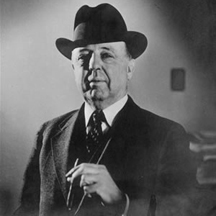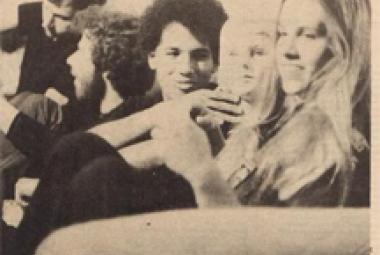John A. Lomax (September 23, 1867 – January 26, 1948) was an American teacher, a pioneering musicologist, and a folklorist who did much for the preservation of American folk music. He was the father of Shirley Mansell, John Lomax, Jr., Alan Lomax, also a distinguished collector of folk music, and Bess Lomax Hawes. (More from Wikipedia)
The most famous music folklorists are in the Lomax family, specifically, John A. Lomax and his son Alan Lomax – Allmusic calls the latter man “a vastly influential ethnomusicologist, archivist, and field recorder who, by capturing the sound of rural America, begat the folk boom”.
Old songs were often not written down but rather transmitted person to person as one learned the tune and words from another. Songs that were performed throughout a nation or region might be handed down for generations; however, lesser known songs might be performed only among a few family members or a handful of friends and could easily be lost.
* * *
John A. Lomax began chronicling cowboy songs in the early years of the 20th Century . He had grown up in rural Texas and began transcribing these songs as a hobby at a young age. Ronnie D. Lankford, Jr. notes in Allmusic:
“[H]is first book, Cowboy Songs and Other Frontier Ballads, in 1910, [was] a groundbreaking work that helped establish the validity of the American folk song outside of the British tradition. He also joined with Professor Leonidas Payne in establishing a Texas branch of the American Folklore Society, an organization committed to preserving folklore before it disappeared.”
However, John A. Lomax fell onto hard times, losing his teaching position and suffering from poor health that was compounded by the death of his wife. Allmusic notes that his son John Lomax, Jr. encouraged his father to go on a lecture tour to revive his spirits. Beginning in 1933, this led to his being commissioned by the Library of Congress – together with another son, Alan Lomax – to tour rural America with a traveling recording machine that weighed 315 pounds.
Benjamin Filene wrote of their work in his book Romancing the Folk: Public Memory & American Roots Music: “Over the next decade, John Sr. [John A. Lomax] and Alan [Lomax] would travel tens of thousands of miles and make thousands of recordings. They did so not with the detachment of academics but with the zeal of proselytizers.”
* * *
During their first 16,000-mile trip to the South over just four months, John A. Lomax and Alan Lomax found Huddie Ledbetter in a Louisiana prison, who became known as Lead Belly or Leadbelly. The liner notes on the album of his that I have said: “Leadbelly is the hard name of a hard man”. The Lomaxes promoted him as an authentic American folksinger, and two of his songs rank high in the folk pantheon: “Goodnight Irene” was a big hit in 1950 for the early folksinging group the Weavers (whose members included Pete Seeger), and the country-blues song “Midnight Special” became the name and also the theme song of a popular musical variety program, The Midnight Special which ran from 1972 to 1981. The latter song was attributed by the Lomaxes to Lead Belly (that was the way that Huddie Ledbetter himself used the nickname); though the song is actually much older, Lead Belly apparently supplied several verses of his own to the song. The reference is to a late-night train that would lift the spirits of men in prison as it rolled past.
Over the course of this trip, John A. Lomax and Alan Lomax uncovered hundreds of songs leading to several important books: American Ballads and Folksongs (1934), Negro Folk Songs as Sung by Lead Belly (1936), Cowboy Songs (1937), and Our Singing Country (1938).
(February 2015)















